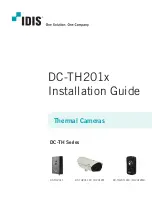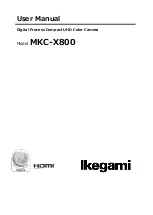
SOUND DETECT & SOUND DETECT PRO USER MANUAL
57
9-1 General Usage
Do not use the device when charging. Do not use the device when charging from
the Power Bank.
9
Device Usage Techniques
CONSULT YOUR SAFETY OFFICER
ABOUT USING THE ACOUSTIC
DEVICE IN YOUR FACILITY OR
WORKING ENVIRONMENT. THE HAND
STRAPS ARE RIGID AND DO NOT
HAVE A SEPARATE SAFETY RELEASE
MECHANISM, SO SPECIAL CARE
SHOULD BE USED AROUND HEAVY
MACHINERY.
When not in use the device should always be placed securely inside the carrying
case to prevent it from falling. Always put the device inside the carrying case
when both hands are need for other tasks, such as climbing ladders. Ensure that
the camera is placed in such a way inside the case that it does not fall out.
Use the lanyard and hands straps to prevent accidentally drops. Do not carry
or lift the device by the lanyard or hand straps. Always carry the device by the
chassis.
Always keep the interface ports covered. Water must not enter the device, as
this may damage the electronics inside.
Protect the microphone array at all times.
Do not touch the video camera lens or the conical microphone holes.
9-2 Inspection Techniques
9-2-1 Modes
Modes are useful for locating different types of sound sources by limiting the
frequency range of sound sources displayed on screen. Background noise,
e.g. traffic or factory noise, is often dominant at low frequencies, while many
interesting phenomena have higher frequencies. Typically, the higher the
frequency range is, the more local the sources of interest are - even in the
presence of a lot of background noise.
The device marks the highest frequency, up to 3, with a crosshair.
It is best
practice to do more in-depth analysis on the marked region as this can indicate
a leak or discharge.





























